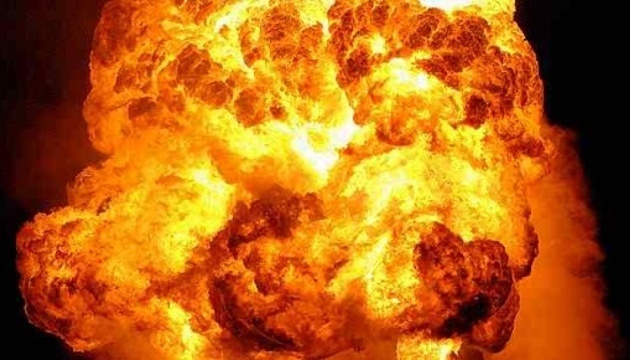
The Polish Ministry of Foreign Affairs described the missile as a “Russian-made” missile, a phrase that could include S-300 ground to air missiles in the possession of Ukraine.
“We agreed to support Poland’s investigation into the explosion in rural Poland, near the Ukrainian border, and they’re going to make sure we figure out exactly what happened,” Biden said before visiting a Mangrove germination plant with other G20 leaders.
The meeting underscored the possibility that the attack represented a Russian assault on Nato territory, something that might require invocation of Nato’s collective self-defence articles. Moscow denied responsibility.
The G7 consists of Canada, Italy, France, Germany, the UK, the US and Japan. The two EU leaders Charles Michel and Ursula von der Leyen also attended, as did the Dutch prime minister Mark Rutte and the Spanish prime minister Pedro Sánchez. Among the national leaders only Japan is not a member of the Nato alliance.
The G7 join with other G20 leaders gather to hold an “emergency” meeting to discuss the missile strike on Polish territory.
The G7 join with other G20 leaders to hold an ‘emergency’ meeting to discuss the missile strike on Polish territory. Photograph: Saul Loeb/AFP/Getty Images
Biden has always been desperate to prevent the war in Ukraine from spilling over on to Nato territory – or into Russia territory – so will be seeking definitive evidence on who fired the missile and the level of intent.
In a joint statement after the meeting, G7 and Nato members referred only to an explosion inside Poland’s borders as opposed to an attack.
“We discussed the explosion that took place in the eastern part of Poland near the border with Ukraine. We offer our full support for and assistance with Poland’s ongoing investigation. We agree to remain in close touch to determine appropriate next steps as the investigation proceeds.”
The statement also said, “We condemn the barbaric missile attacks that Russia perpetrated on Ukrainian cities and civilian infrastructure on Tuesday”.
Russia’s defence ministry denied that Russian missiles hit Polish territory, describing reports as “a deliberate provocation aimed at escalating the situation”.
It added in a statement: “No strikes on targets near the Ukrainian-Polish state border were made by Russian means of destruction.”
The fact that Poland is seeking Nato consultations under Article 4 as opposed to actions in self-defence as prescribed under Article 5 showed Poland is acting cautiously. Nato is likely to meet at the official level in Brussels. The UN secretary general António Guterres described the attack as incredibly concerning before convening a meeting of the UN security council later on Wednesday
Both the Polish president Andrzej Duda and the Polish prime minister Mateusz Morawiecki have called for calm and to be wary of fake news.
The Ukrainian foreign minister Dymotro Kuleba had pointed the finger of blame at Russia saying on Twitter “Russia now promotes a conspiracy theory that it was allegedly a missile of Ukrainian air defense that fell on the Polish theory. Which is not true. No one should buy Russian propaganda or amplify its messages. This lesson should have been long learnt since the downing of MH17”, the Malaysian civilian aircraft shot down by Russia in Ukrainian airspace.
He later said he had held a detailed call with the US secretary of state Antony Blinken on the “Russian missile terror – its scale, aims, consequences. I stressed the response to what happened in Poland must be stiff and principled.” He added he was “grateful for affirming the US will double down on recovering our energy system, together with G7 and the EU.”
But regardless of the outcome of the inspection of the wreckage of the attack, and the precise conclusions drawn, Poland and Ukraine are likely to demand an increase in air protection in eastern Europe. Ukraine has been seeking improved air defences for weeks and its defence minister Oleksii Reznikov said on Twitter: “We were asking to close the sky, because sky has no borders. Not for Russian uncontrolled missiles. Not for the threat they carry for our EU & Nato neighbours. Gloves are off. Time to win”.
The scale of the Russian missile strikes on Ukraine on Tuesday was described by Ukraine as the most severe of the entire war and may have been designed as a show of force by Russian president Vladimir Putin to members of the G20 gathered in Bali. Putin refused to attend the summit himself, but Sergei Lavrov, his foreign minister and substitute was at a gala dinner hosted by the Indonesian president Joko Wikodo as the attacks were being launched.
Indonesia’s painstaking attempts to make the G20 agenda sidestep the war in Ukraine have been dealt a final blow by Putin’s latest assault on Ukraine’s energy infrastructure.




